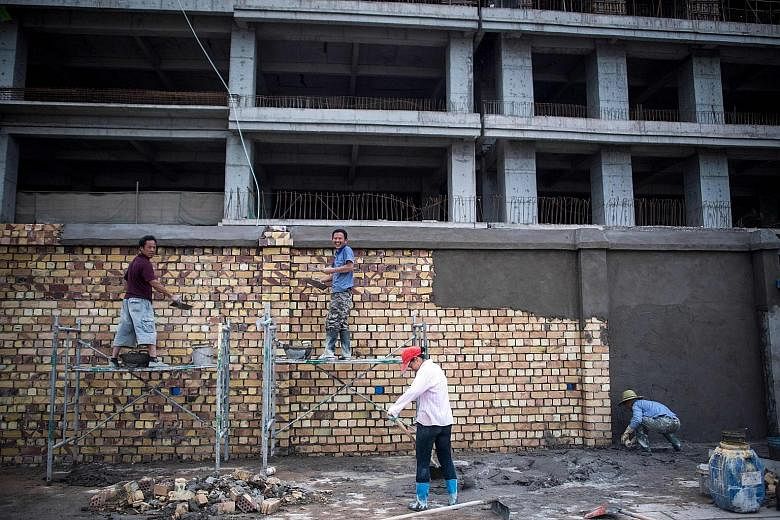HONG KONG • Chinese developers facing a looming wall of debt repayments have been thrown a lifeline by regulators easing access to offshore financing. That will not solve all their problems.
The nation reported the deepest slowdown in new home sales in almost three years on Tuesday. The local authorities have rolled out curbs to cool runaway prices and President Xi Jinping has urged citizens to end their speculation on housing.
Amid the slowdown, developers still face restrictions on borrowing in the local bond market, rising costs for domestic financing - including shadow loans - and a record US$30 billion (S$40.7 billion) in onshore and offshore bonds due next year. That figure balloons to US$71 billion if put options are exercised, according to Bloomberg-compiled data.
"Cooling measures will slow down sales and cash receipts," said senior credit analyst Clement Chong at NN Investment Partners in Singapore. "The government is unlikely to loosen these restrictions in the near term."
Home sales, excluding affordable housing, fell 3.4 per cent in value last month from a year ago, according to data released on Tuesday.
So far this year, offshore bond sales almost tripled while local offerings - dominant in 2016 - shrank over 60 per cent. That trend looks set to continue, with the National Development and Reform Commission (NDRC) more willing to approve larger quotas for offshore bond deals than earlier in the year, people familiar with the matter said on Tuesday.
At least eight builders received quotas or had indications from the NDRC that approval is imminent, they said.
With the Shanghai Stock Exchange keeping the threshold high for property firms to sell bonds since October 2016, more builders have turned to shadow financing. For developers that managed to tap the domestic bond market, the average coupon has climbed to 5.6 per cent this quarter, 1.6 percentage points higher than the level in the first three months of this year, Bloomberg-compiled data show.
The higher funding costs could be expected to have impact on debt serveability, said an analyst.
To be sure, Chinese developers have a sizable cash buffer to counter any short-term liquidity squeeze, helped by years of strong sales, said Shanghai-based property analyst Pang Ling at China Real Estate Information Corp.
Yet the picture may not be as rosy for small developers as for bigger firms.
"Smaller developers who have weaker access to funding will face trouble," Mr Chong at NN Partners said. "Some of them will exit the industry."
BLOOMBERG

